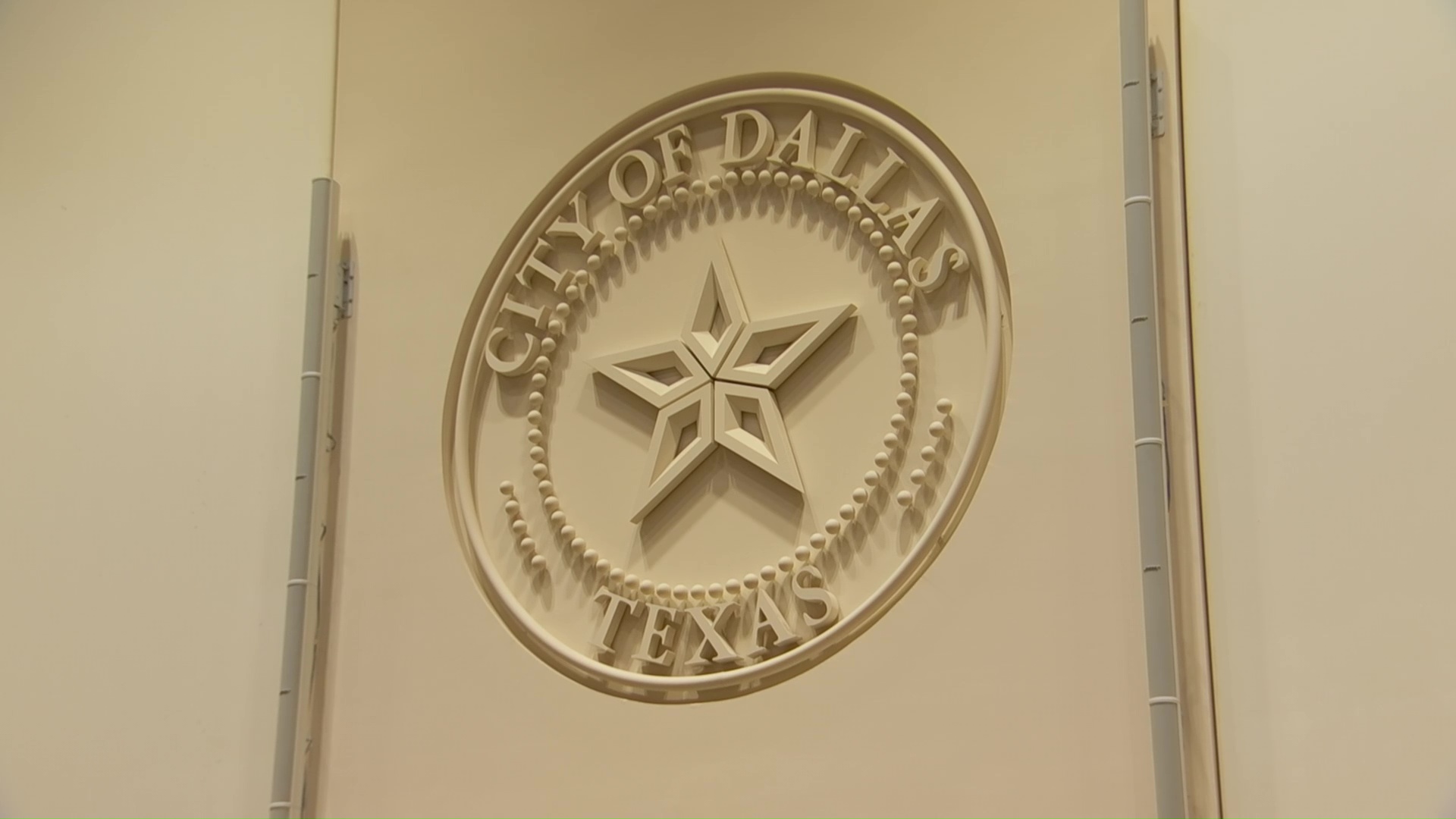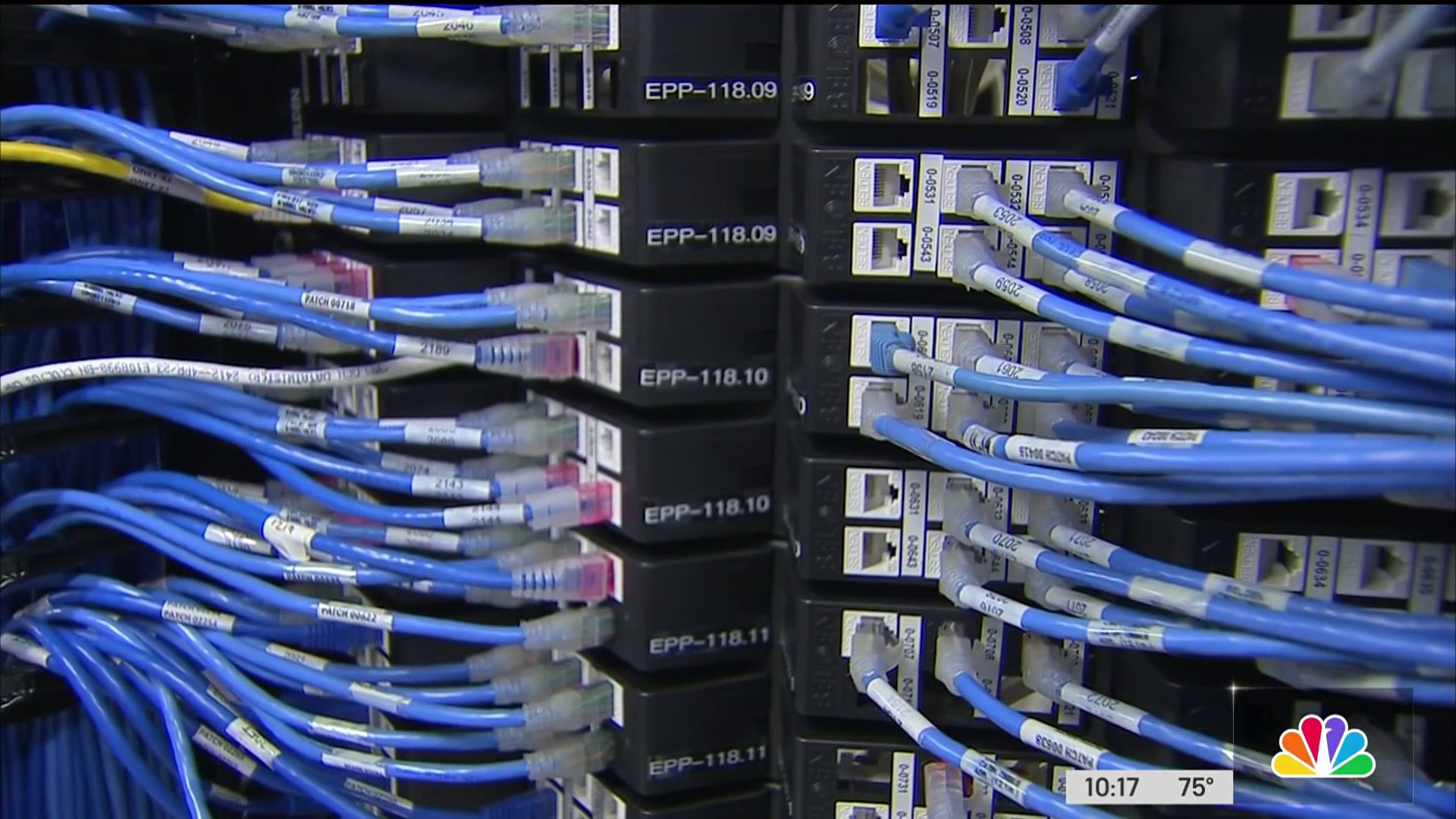The Dallas Municipal Court Building is closed this week due to the city's ongoing battle against a ransomware attack.
The attack, which began 19 days ago, put a halt to hearings, trials and jury duty.
The municipal building had been open to provide general information on citations while the system was down, but now the city's website said the building isn't planned to reopen until May 30.
The closure comes as "Royal," the group believed to be behind the ransomware attack, is threatening to release personal data including Social Security number and credit card information or sensitive information from court cases and government files. The threat was made in a blog post by the group on Friday.
Get top local stories in DFW delivered to you every morning. >Sign up for NBC DFW's News Headlines newsletter.
The threat prompted the Dallas Fire Fighters Association and the Dallas Police Association to issue a joint letter Monday evening addressed to city manager T.C. Broadnax requesting the city purchase identity theft protection for its members.
DFFA president Jim McDade told NBC 5 he hasn't received assurance from anyone inside the city that the risk has been eliminated of personally identifiable information being released by the hacking group.
The city addressed the concerns again Monday saying "there remains no established evidence of a data leak" in an updated statement of the ongoing impacts of the attack on the city
Several city sites have been impacted by the ransomware attack, including the police department's ability to track crime statistics.
Some city websites are operating again. Police and Fire computer dispatch was working, officials said.
IMPACT ON CRIMINAL CASES
Criminal court cases are also suffering from the effects of the ransomware attack.
"Justice that is delayed like this is, is justice denied," said Doug Huff, president of the Dallas Criminal Defense Lawyers Association.
Adding insult to injury, Huff said the attack interrupted a very important review of cases that were affected by the data loss incident in 2021. Millions of files in thousands of cases were accidentally deleted in a major mistake by a City of Dallas IT worker. The loss of data lead to a mistrial in a murder case, delayed trials, and other serious issues.
"They've had to suspend that review right now. So until that is resolved, we're not even moving forward with the triage of the evidence on the most serious of cases," Huff said. "This is of course, incredibly problematic from both the defense and from the prosecution side."
The ransomware attack is making it difficult to access Dallas PD's computer system.
"The DPD evidence room is not a small room. In fact, it is a rather large warehouse and that is physical evidence that is cataloged there. Their computer systems that do that cataloging are unavailable to them because of the ransomware," Huff said.
He explained it's like searching for evidence in 2023, the way they did over 50 years ago -- before computers.
"Go to a library where the Dewey decimal system doesn't exist and there are no computer systems. And try to find the book you want. That's the kind of problem that they could that they'll be dealing with in the evidence warehouse for DPD," Huff said.
He added the ransomware attack has exacerbated the issues already faced in criminal courts, with continued trial delays and juries are having to make decisions without seeing all the evidence from DPD's system.
"I understand they are trying to work on a workaround to be able to access what they have. But that's causing delays in trials as we speak," he said. "These delays in discovery and evidence that is now either lost or missing, affects all the citizens that have been been charged with a crime."
Dallas police chief Eddie Garcia remains vocal over his frustration.
“There’s no question about it. Very, very frustrating. Hopefully we'll get through it but it’s impacting the department quite a bit," he told NBC 5 on Monday.
Dallas County district attorney John Creuzot said Monday his office is keeping a close watch on potential impacts on criminal cases.
"Right now we haven’t hit what I would call a critical wall on anything, but that doesn’t mean that we won’t," Creuzot said. “The fact that we don’t have access to something doesn’t mean we can’t go to trial, For example, it might be something that doesn’t have any meaning to the case. Or it may be something that there’s a picture of. Sometimes we have evidence that we don’t have access to but it’s duplicated so we have the other part of it that show the same thing.”
Creuzot adding messages to district judges will likely go out this week on the difficulties he says prosecutors are facing scheduling witnesses.
“We’re going to have to let this play its course with the City because they’re going to have to rebuild certain systems. We don’t have any control over time and neither do they," said Creuzot. "But from our standpoint, we intend to be ready for trial and if we’re not, we’re going to be honest with the defense and the judge and state exactly what our situation is."







